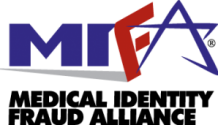Cell phone? Check. Credit Card? Check. Health Insurance Card…?
Most people are sure to protect their cell phone and credit cards. You should have the same sense of urgency to guard your health insurance card.
Medical identity theft is a complicated, costly crime that is difficult to resolve, can negatively affect your reputation and potentially harm your health. It can happen simply by someone borrowing or stealing your health insurance card and using your information to:
- Have health services performed and file for reimbursement
- Bill for health services that didn’t happen
- File claims for health services or drugs not received
- Forge or alter bills, receipts and other health care forms
- Go “doctor shopping” to get multiple prescriptions
Stealing health information is a crime that’s on the rise. In the past five years alone, the number of victims has nearly doubled to more than 2 million annually, according to the Medical Identity Fraud Alliance (MIFA), which studies medical theft to help reduce medical identity fraud.
If someone steals your health insurance information, the consequences can be detrimental. Medical identity fraud can be:
- Dangerous to your health
- Costly
- Difficult to detect and resolve
Consumers should work with their health insurers to help them protect their medical information. For instance, health insurer Health Alliance Plan (HAP) helps protect its members by using special software that continuously looks at claims data and other information to identify claims that look suspicious and may need to be investigated. HAP also employs a team of highly skilled professionals who are dedicated to identifying instances of health care fraud.
According to HAP, there are a number of steps you can take to help prevent becoming a victim of medical identity fraud.
Click here to read the full article.
October 18, 2016 By NAPSI
